How Reading Changed My Life
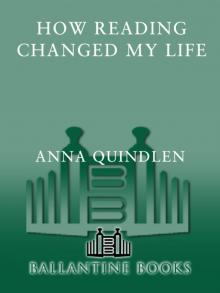

Author: Anna Quindlen
Category: Literature
Published: 1998
Series:
View: 237
Read OnlineA recurring theme throughout Anna Quindlen's How Reading Changed My Life is the comforting premise that readers are never alone. "There was waking, and there was sleeping. And then there were books," she writes, "a kind of parallel universe in which anything might happen and frequently did, a universe in which I might be a newcomer but never really a stranger. My real, true world." Later, she quotes editor Hazel Rochman: "Reading makes immigrants of us all. It takes us away from home, but, most important, it finds homes for us everywhere." Indeed, Quindlen's essays are full of the names of "friends," real or fictional--Anne of Green Gables and Heidi; Anthony Trollope and Jane Austen, to name just a few--who have comforted, inspired, educated, and delighted her throughout her life. In four short essays Quindlen shares her thoughts on the act of reading itself ("It is like the rubbing of two sticks together to make a fire, the act of reading, an improbable pedestrian task that leads to heat and light"); analyzes the difference between how men and women read ("there are very few books in which male characters, much less boys, are portrayed as devoted readers"); and cheerfully defends middlebrow literature:
Most of those so-called middlebrow readers would have readily admitted that the Iliad set a standard that could not be matched by What Makes Sammy Run? or Exodus. But any reader with common sense would also understand intuitively, immediately, that such comparisons are false, that the uses of reading are vast and variegated and that some of them are not addressed by Homer.
The Canon, censorship, and the future of publishing, not to mention that of reading itself, are all subjects Quindlen addresses with intelligence and optimism in a book that may not change your life, but will no doubt remind you of other books that did. --Alix Wilber(less)
Most of those so-called middlebrow readers would have readily admitted that the Iliad set a standard that could not be matched by What Makes Sammy Run? or Exodus. But any reader with common sense would also understand intuitively, immediately, that such comparisons are false, that the uses of reading are vast and variegated and that some of them are not addressed by Homer.
The Canon, censorship, and the future of publishing, not to mention that of reading itself, are all subjects Quindlen addresses with intelligence and optimism in a book that may not change your life, but will no doubt remind you of other books that did. --Alix Wilber(less)
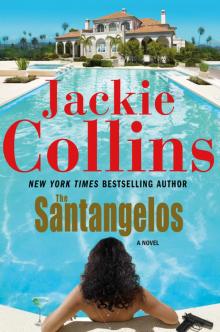 The Santangelos
The Santangelos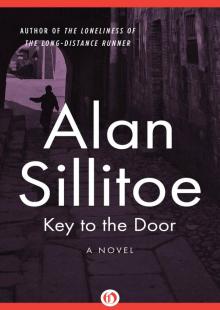 Key to the Door: A Novel (The Seaton Novels)
Key to the Door: A Novel (The Seaton Novels)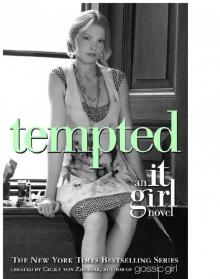 Tempted
Tempted Billie
Billie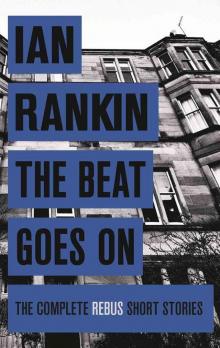 The Beat Goes On: The Complete Rebus Stories
The Beat Goes On: The Complete Rebus Stories Alex Cross's Trial
Alex Cross's Trial Larkspur Cove
Larkspur Cove Gunman's Reckoning
Gunman's Reckoning